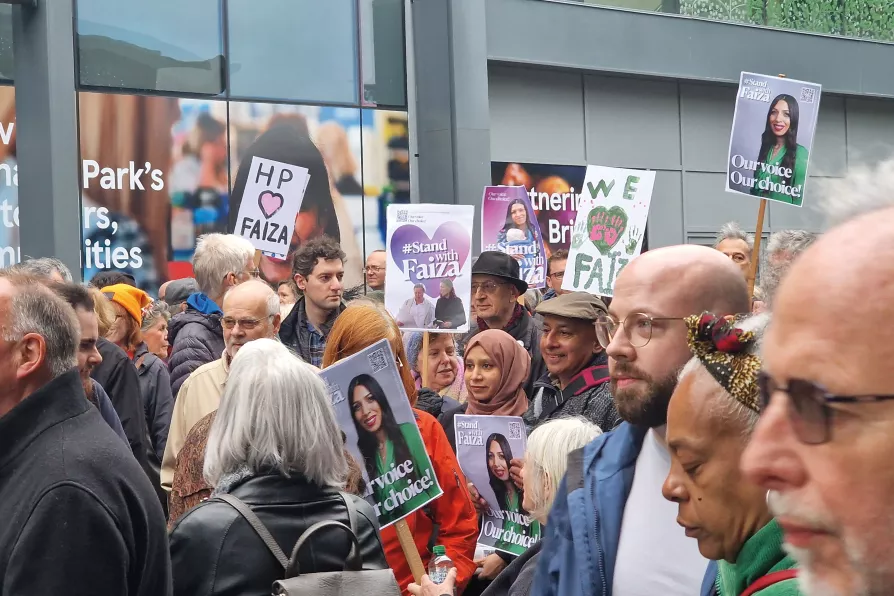Corbyn’s intervention exposes a corrupted system, writes CLAUDIA WEBBE
Muslim Vote campaign: ‘Our demands are in line with what ordinary people need’
After his organisation helped elect four independent MPs, ABUBAKR NANABAWA talks to Andrew Murray about how Muslim Vote, although sparked by the war on Gaza, has a working-class agenda that reaches far beyond Muslims

 OUTRAGE AND SOLIDARITY: Supportersof Faiza Shaheen gather to endorse her choice to run as an independent candidate
OUTRAGE AND SOLIDARITY: Supportersof Faiza Shaheen gather to endorse her choice to run as an independent candidate
THE man who did more damage to Keir Starmer’s Labour Party on July 4 than the socialist left aggregated is sipping hot chocolate in a cafe in Gloucester and pulling no punches.
“They don’t care about the anti-war movement, Muslims, the left, the working class.”
Abubakr Nanabawa is referring to the Labour Party. He is the director of Muslim Vote, the organisation which helped elect four independent MPs at the general election and powered the mass abandonment of Labour by Muslims on polling day.
Similar stories

VINCE MILLS cautions over the perils and pitfalls of ‘a new left party’

VINCE MILLS gathers some sobering facts that would inevitably be major obstacles to any such initiative

ANDREW MURRAY wonders whether recent opinion polling and a fresh local authority by-election result in Ilford are an indication that the time is ripe for the left to make inroads











